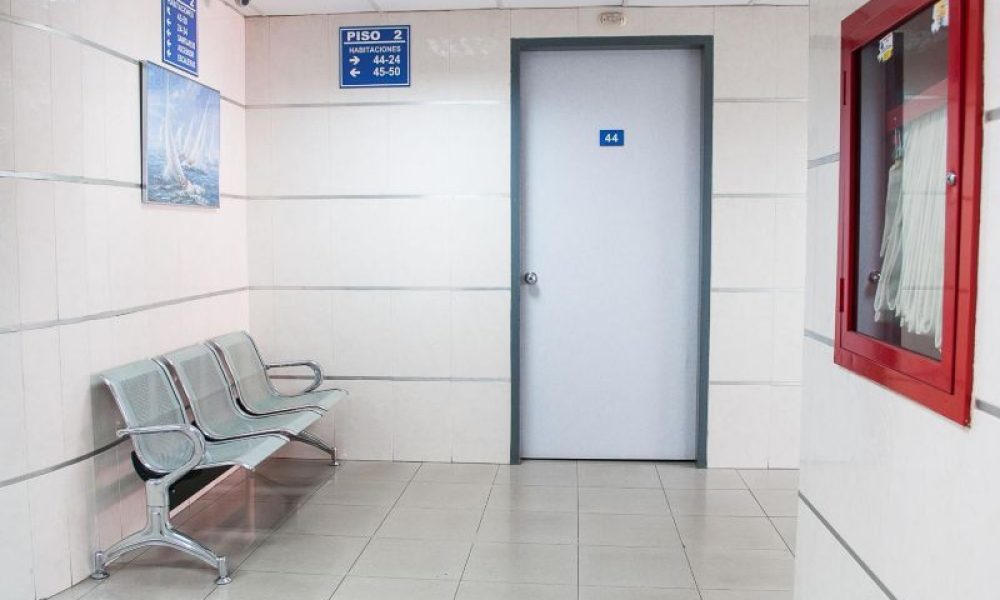Businesses, irrespective of their size or industry, have a responsibility to provide a safe and healthy environment for their employees, customers, and visitors. The outbreak of contagious diseases, such as COVID-19, highlighted the importance of proactive measures to maintain a clean and hygienic workspace. However, maintaining such conditions in the face of a sudden outbreak or an emergency can be challenging. This is where emergency disinfection services come into play.
Emergency disinfection services for businesses are specialized services that aim to quickly and thoroughly disinfect commercial spaces to eliminate harmful pathogens and ensure a safe environment. These services are not limited to pandemic scenarios; they are also applicable to situations like biohazard contamination, water damage, pest infestations, and more.
The Significance of Emergency Disinfection Services
1. Protection of Human Health
The primary and most critical significance of emergency disinfection services is the protection of human health. A clean and disinfected environment reduces the risk of disease transmission, particularly in high-traffic areas like offices, retail stores, restaurants, and healthcare facilities.
2. Business Continuity
In the event of a pandemic or an emergency that requires a temporary shutdown of operations, businesses can incur significant financial losses. Emergency disinfection services help in the swift restoration of operations by ensuring that the workspace is safe for employees and customers. This minimizes downtime and financial setbacks.
3. Reputation Management
A business’s reputation is closely tied to its commitment to safety and hygiene. The public and employees have come to expect high standards of cleanliness and sanitation. Effective emergency disinfection services demonstrate a business’s commitment to maintaining these standards, which can enhance its reputation and trustworthiness.
4. Compliance with Regulations
Regulations related to health and safety in commercial spaces are stringent, and non-compliance can result in penalties and legal liabilities. Emergency disinfection services help businesses meet these regulatory requirements and avoid legal consequences.
Key Elements of Emergency Disinfection Services
Emergency disinfection services encompass a range of activities and considerations to ensure comprehensive cleaning and pathogen removal. Some of the key elements include:
1. Assessment and Planning
Emergency disinfection begins with a thorough assessment of the affected area. The type of pathogen, extent of contamination, and the specific needs of the business are considered. A detailed disinfection plan is then developed, taking into account the layout and requirements of the space.
2. Use of Effective Disinfectants
The choice of disinfectants is critical. These should be approved by relevant health authorities and effective against the targeted pathogens. The disinfectants should be safe for humans and the environment.
3. Proper Personal Protective Equipment (PPE)
Technicians performing the disinfection need to wear appropriate PPE to protect themselves from potential exposure. This can include gloves, masks, gowns, and eye protection.
4. Cleaning and Disinfection Methods
Cleaning and disinfection methods vary depending on the specific circumstances. For example, electrostatic spraying may be used for large open spaces, while manual wiping with disinfectant-soaked cloths may be employed for high-touch surfaces.
5. Ventilation and Air Quality
Proper ventilation is essential to remove potentially contaminated air from the space. Air purifiers and HVAC systems may be adjusted to ensure improved air quality.
6. Waste Management
Waste generated during the disinfection process, including used PPE and cleaning materials, should be properly handled and disposed of in accordance with regulations.
7. Testing and Verification
After the disinfection process, testing and verification procedures are conducted to ensure the efficacy of the cleaning. This may involve surface swabs, air quality tests, or other assessments.
8. Documentation and Reporting
Businesses should maintain documentation of the emergency disinfection process for legal and compliance purposes. This documentation may include disinfectant records, test results, and cleaning protocols.
Business Types and Emergency Disinfection
Different types of businesses have unique needs when it comes to emergency disinfection services. Here’s how these services can be tailored to various industries:
1. Retail and Hospitality
Retail stores and hospitality businesses, such as hotels and restaurants, need frequent and thorough disinfection to ensure customer safety. The high volume of foot traffic and frequent interaction with customers makes these businesses particularly vulnerable to pathogen transmission.
2. Office Spaces
Office spaces are another critical area for emergency disinfection, especially given the potential for close contact among employees. Many companies have adopted a hybrid working model with both remote and in-office work, making it vital to keep the office environment safe.
3. Healthcare Facilities
Hospitals and clinics require the highest level of disinfection due to their association with patient health. Emergency disinfection services for healthcare facilities are essential to prevent the spread of infections among patients and staff.
4. Manufacturing and Industrial Facilities
Industrial and manufacturing facilities often deal with hazardous materials, and the emergency disinfection of such spaces may require specialized cleaning techniques to ensure safety.
5. Educational Institutions
Schools, colleges, and universities need to prioritize the health and safety of students, teachers, and staff. Emergency disinfection services in these settings are essential for controlling the spread of infectious diseases.
6. Transportation and Public Spaces
Airports, public transportation hubs, and public spaces like shopping malls are high-traffic areas where pathogens can easily spread. Emergency disinfection services are vital to maintain public health in these settings.
Challenges and Considerations
While emergency disinfection services offer significant benefits, they are not without challenges and considerations:
1. Cost
Emergency disinfection services can be costly, especially for large spaces or frequent disinfection needs. Businesses must budget for these services and consider them as an essential part of risk management.
2. Sustainability
The chemicals and processes used in disinfection should be environmentally friendly whenever possible. Sustainable practices are becoming increasingly important for businesses.
3. Regulatory Compliance
Businesses need to stay informed about local, state, and federal regulations regarding health and safety. Compliance is essential to avoid legal issues.
4. Human Resources and Training
Properly trained technicians are necessary to carry out emergency disinfection effectively. Businesses should invest in training and education for their staff or contract with qualified service providers.
5. Response Time
In emergencies, response time is critical. Businesses should have a plan in place to access emergency disinfection services promptly.
Conclusion
As businesses continue to face the challenges posed by contagious diseases and other emergencies, investing in emergency disinfection services becomes a strategic decision that not only safeguards operations but also reinforces their reputation and commitment to public health. In an ever-changing world, these services are a critical component of business resilience and sustainability, ensuring that employees and customers can interact in environments that are clean, safe, and conducive to well-being.







